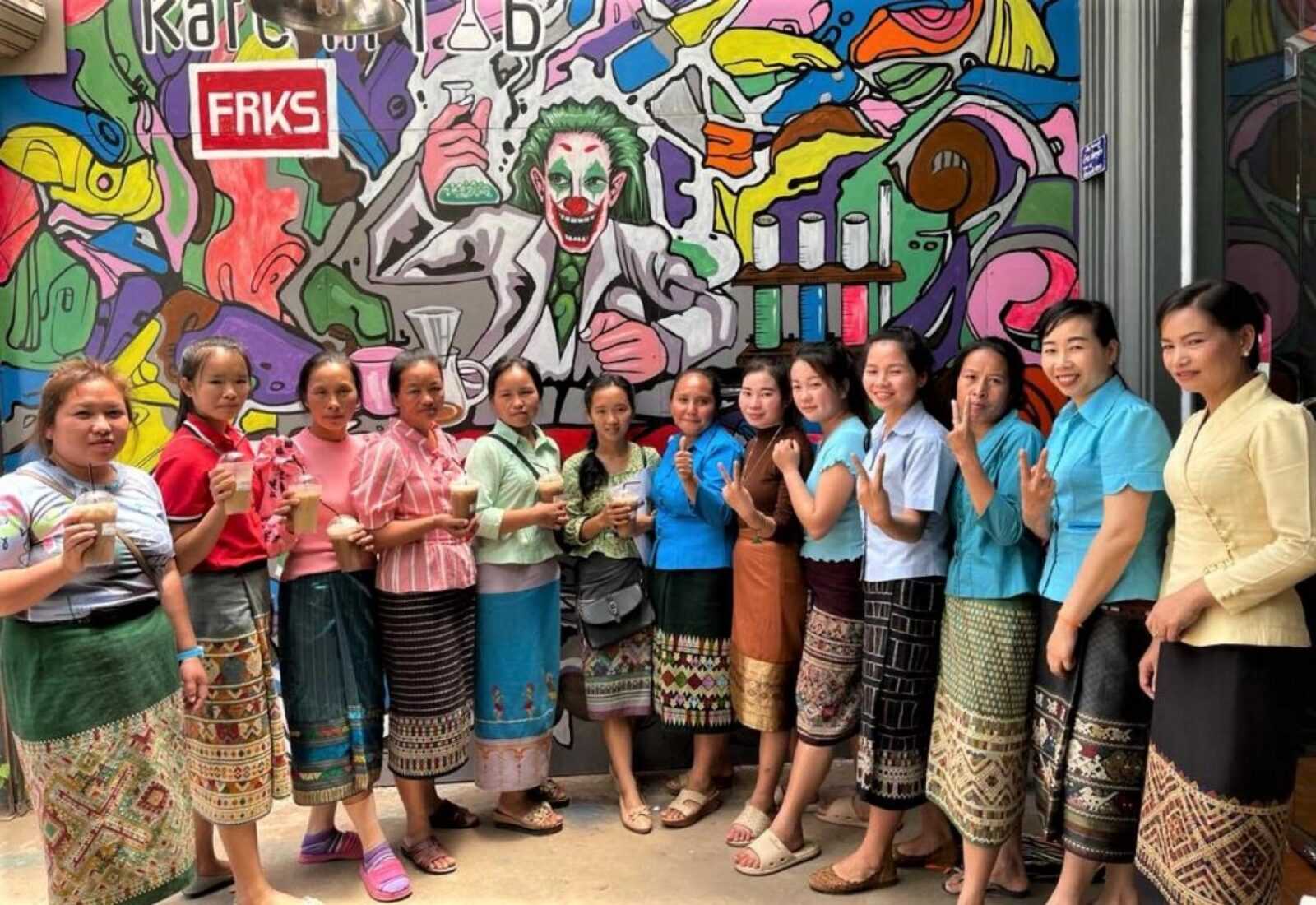HUAPANH, Lao People’s Democratic Republic – Huapanh, a province of Lao PDR, is infamous for the cultivation of opium poppies, an illegal crop that has been a dominant source of income for generations. However, the tides are changing in Huapanh. A group of former opium farmers has recently set up Vanmai Coffee Cooperative. Vanmai means “new day” in the local Lao language, expressing the farmers’ hope to leave behind opium and conflict, to fight poverty and provide their children with a brighter tomorrow.
Since then, the farmers have embarked on a journey that has opened the doors to a new, bustling, and licit international market — the global coffee industry.
Building the plantations
With the assistance of experts and agronomists from the UN Office on Drugs and Crime (UNODC), farmers have planted around 400 hectares of coffee and established their own cooperative to independently process and commercialize coffee for premium international markets.
Wet processing centres have already been installed across 12 coffee growing communities. The construction of a warehouse, a dry mill, and an office for the cooperative — boasting its own coffee shop — is scheduled to begin in 2021.
“We will improve the quality of our coffee, the organic coffee that is free from toxic chemicals, because we think it is the way to add value to our products and to protect [the] environment” says Savaythong Khounsavanh, President of the Vanmai Cooperative. “We believe that the project will help villagers in the area have a better livelihood in the future.”
Building knowledge and skills
There is a huge demand internationally for great organic coffee. But the Lao coffee sector faces many challenges, such as low productivity on farms, lack of minimum quality standards, high logistical costs, and low capacity for research and commercialization.
To address these challenges, the International Trade Centre (ITC) joined government partners and the Lao Coffee Association in organizing a training on how to start organic coffee farms. The manager and support staff of the Vanmai cooperative in Northern Lao PDR participated in this training.
Amongst the 70 participants who joined virtually from across Lao PDR, Phaengsy Daoduangdee, the owner of Duangdee Coffee Farm, says: “I was able to gain a deeper understanding of organic farming and the process of applying for organic certification. In addition, I learned different organic ways to eliminate coffee pests, particularly coffee stem-borers, which have been a big issue for us farmers for some time.”
Building a Women’s Network
Vanmai recently established a Women’s Network with 12 elected members. With the aim of building a cohort of female leaders, the UNODC-led project supports this group with in-depth trainings on coffee as a business.
Ms. Siathor Yialao, a member of the Women’s Network, is happy that she can participate in the project from the beginning. “I want to earn money so I can send my children to school, and I can buy things in the market,” she says. “Before the project, I did not have money to travel outside of my home province. Now, I can travel to other provinces. And one day, I think I will earn enough money to travel abroad.”
“We can earn income without opium,” says Ms. Sengvida Sengmanivong, leader of the Vanmai Women’s Network. “Thanks to the project, we are now with higher incomes than before. We can buy medicines and household items for our daily life.”
Members from the Women’s Network of the 12 villages participated in the training sessions on coffee tasting and gender empowerment. The Women’s Network also set up interest groups for their participants to share knowledge with others.
“It is not only about coffee plantation,” says Sengvida, “but also about other things in life that we can talk and share. We feel that we have more solidarity among villagers through these activities.”
Building a future
A container truck loaded with coffee crossed the Friendship Bridge between Lao PDR and Thailand before continuing its journey onto a container ship to Europe, its destination.
“This is a big day for us,” says Mr. Savaythong Khounsavanh, President of the Vanmai Cooperative. “We have been working for this since we planted our first coffee seedlings four years ago.”
Vanmai farmers took another big step in April of this year. A five-year partnership agreement with the renowned French coffee roaster Malongo was signed and their coffee export expects to increase from 20 tons in 2021 to 200 tons in 2025. Over the last few months, the farmers have worked hard to prepare the coffee for their first-ever export.
“Opium-cultivating areas and farmers have become even more vulnerable as the pandemic affected their livelihoods,” explains Erlend Audunson Falch of the UNODC office in Lao PDR. But illegal trade channels are less impacted, he adds, meaning that opium could become the only option for many communities. “That is why successes like this one are so important,” Mr. Erlend adds. “The Vanmai farmers are really leading by example.”
“When we started, we were very worried that we would have no buyer for our coffee,” says Mr. Savahtyong. “But now I am starting to believe that this is a real future for us.”
This story draws from previously published stories from the UNODC website and the UN in Lao PDR website. Editorial support provided by Lyla Peng and Paul VanDeCarr. For more information about the United Nation’s work in Lao, PDR, please visit: Laopdr.UN.org. To learn more about the results of our work in this area and beyond, please read the UNSDG Chair Report on DCO.
















